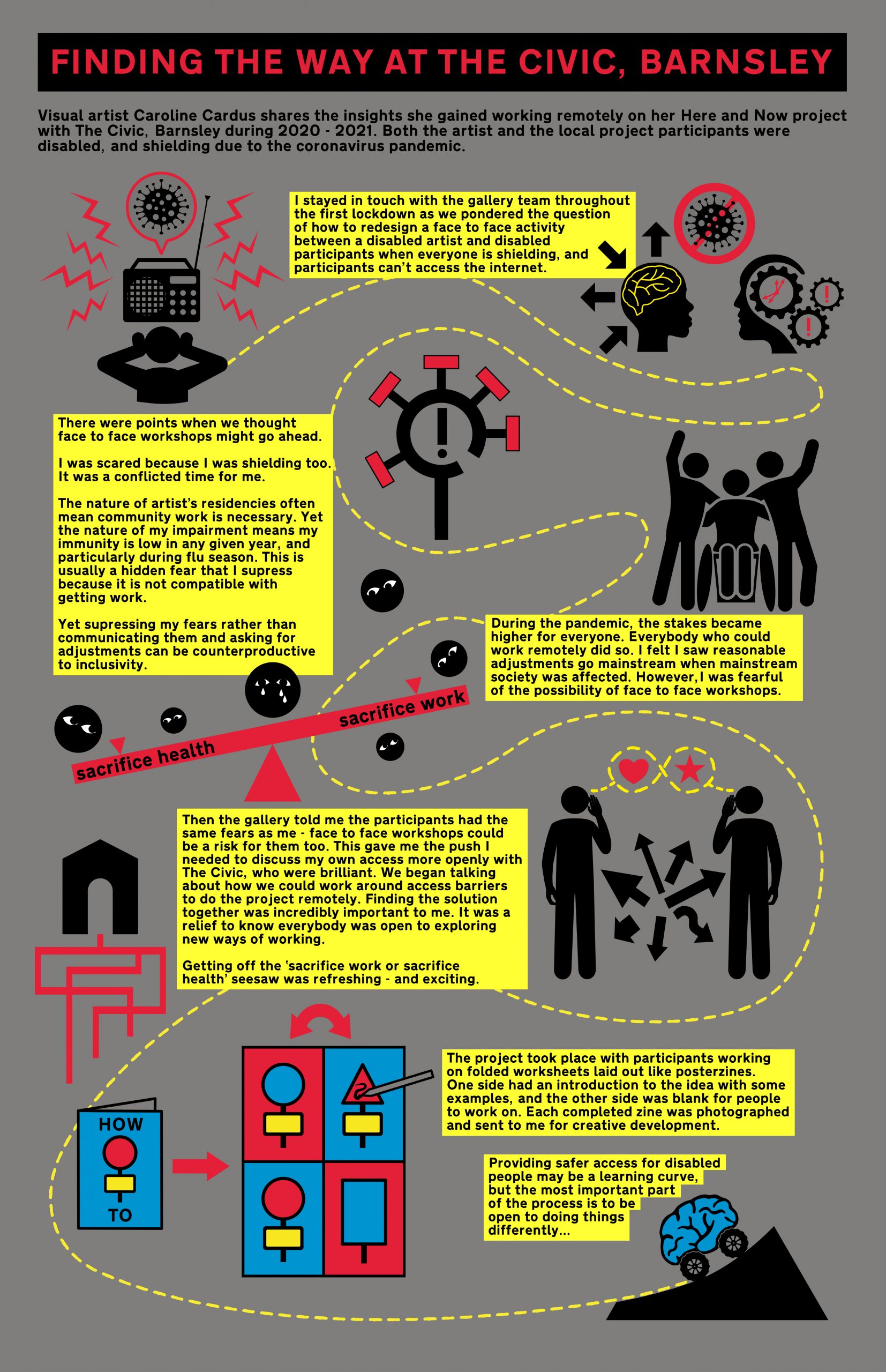Finding the Way with Barnsley Civic
In this post artist Caroline Cardus reflects on the impact that Covid-19 had on her Here and Now project with The Civic, Barnsley and how her experience working with the team there has shaped both her approach to undertaking commissions and her realisation that reasonable adjustments are just that....reasonable!

Visual artist Caroline Cardus’s art practice focusses on creative activism. Her text based, subversive and graphic style practice brings forth frank, darkly humorous and powerful messages about the human impact of inequality and discrimination.
www.carolinecardusartist.com
www.instagram.com/caroline_cardus